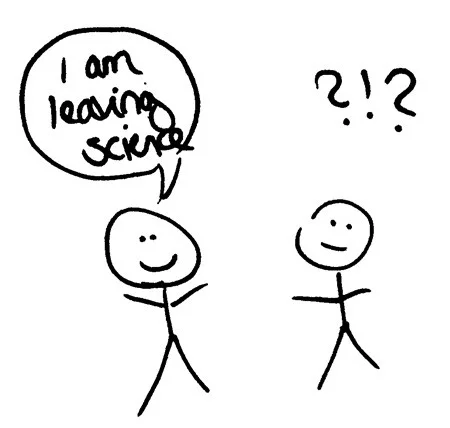You are good at your job, you are successful, you have achieved what most of us are aiming for, you are inspiring the new generation. How can you think about doing something else? What would the community do without you? Who will take care of the lab?
People having opinions about our career choices is inevitable. How do you deal with it? And what happens when you decide to follow a path that others think is crazy?
This is what people said to me when I mentioned looking for a non-science job. I had my reasons, obviously, but people were not interested in those. All that counted was that I was one of the successful few, with a Prof. Dr. in front of my name, a respected expert in the field with a long publication list, invited to give talks at international meetings and to write reviews. Me thinking about ‘doing something else’, moving away from science, was not imaginable. Does that sound familiar?
Don’t get me wrong, I truly enjoyed being a scientist, and I am very grateful for the great experience of travelling to conferences, living abroad, defining and working on my own projects, continuous learning and meeting new people almost daily, the excitement when that complex dataset finally made sense, the pride when another grant was approved, a paper accepted or cited, or a student successfully graduated. My life was one big adventure, I was always on the road, on a mission to understand, to push boundaries, to move the field forward.
Though, this lifestyle had a downside, and here I am not thinking about filling in tax forms for three countries in a single year or the constant hassle with insurance companies. Rather, I had never actively chosen this career path. As an A-level student, it was just natural to continue and pursue a PhD. Being surrounded by scientists, and with constant encouragement (‘you are good at what you are doing, you should continue’), I moved through my postdoc projects, and became an assistant professor aged 32, barely older than my students and much younger than my colleagues. It was a lot of work (science IS a lot of work), but at the same time, it just happened, somehow… During the first years as a professor, I was busy figuring out my new tasks: leading a research group, establishing a work culture, handling conflicts within and outside the group, managing the lab, teaching, dealing with students’ writing struggles or long-term sick leaves. Only then did I start thinking about my career, and I realised this was all an exciting challenge, but it was not me. Others told me I was good at my job, but there was this gap between my interests and what I did every day. So I decided to leave science, and move to counselling instead.
Funny enough, a few months later, and after my career change, the same people would congratulate me on my courage, telling me that the new job was a great fit for my personality, and that they had always known I would be good at counselling. They had just needed some time to adapt to the idea. Therefore, I encourage everyone out there to follow your dreams, try out whatever interests you, no matter what the people around you may say. Focus on those who do support you. Everyone else will get used to it, eventually.
